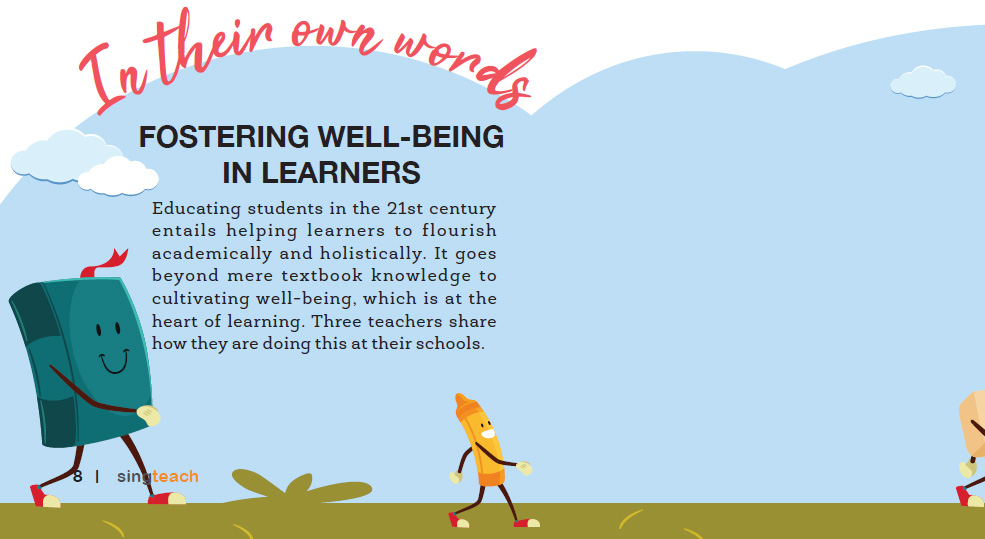Young Children’s Voices in Mathematical Problem Solving
Contributed by Dr Ho Siew Yin and Sng Wei Qin Abbie, from NTUC First Campus, for SingTeach Virtual […]
Read More
Educating students in the 21st century entails helping learners to flourish academically and holistically. It goes beyond mere textbook knowledge to cultivating well-being, which is at the heart of learning. Three teachers share how they are doing this at their schools.

Mrs Chua-Yap Chen Hian Veronica
Director (Well-Being), Hwa Chong Institution
“The Singapore education journey is such an exciting one! Fostering the well-being of students is, in effect, helping them explore and find their calling in life. It also encourages students to learn the soft skills to navigate through life with confidence, a realistic sense of optimism and good fellowship. Teachers can instil the joy of learning in students by understanding the psychology of engagement, connecting with them, and practicing self-care.”
Mrs Ng-Kang Yee Fhang, Fann
Head of Department (Character & Citizenship Education), Clementi Town Secondary School
“Explicit teaching in character and citizenship education equips students with life skills such as resilience, empathy and growth mindset. There are also many school experiences that allow students to exercise these skills so that they can master them for their own well-being. Building on strengths under wisdom such as love for learning, curiosity and creativity can be nurtured to make their learning a joyful and life-long experience. As educators, we could consciously create such opportunities so that students can savour these strengths.”
Ms Juli Anna Mohamad Aris
Senior Teacher (Mathematics), Assumption Pathway School
”Many studies have shown that fostering well-being, especially through specially designed guidance programmes, is able to provide the platform for students to experience something positive. As students get to know themselves and others around them better, they are intrinsically motivated to care and be kind to others. We hope such intended process will not only plant seeds of positive behaviour in the students but motivate them to become ‘pro-social agents’, not only within the school but out to the community as well.“
Subscribe to our newsletter to receive the latest information about our articles and events. Email us at sgteach@nie.edu.sg for assistance.
On topics related to teaching and learning, we invite you to contribute articles that focus on the following:
We welcome contributions that explore how educators are shaping the future of learning in a rapidly changing world marked by technological advancements and global challenges.
If you have a classroom or education research story to share, we invite you to send in your contribution articles.
Submit your contribution here:
SingTeach complies with the Personal Data Protection Act 2012 of Singapore
For questions, please contact the editorial team: sgteach@nie.edu.sg
